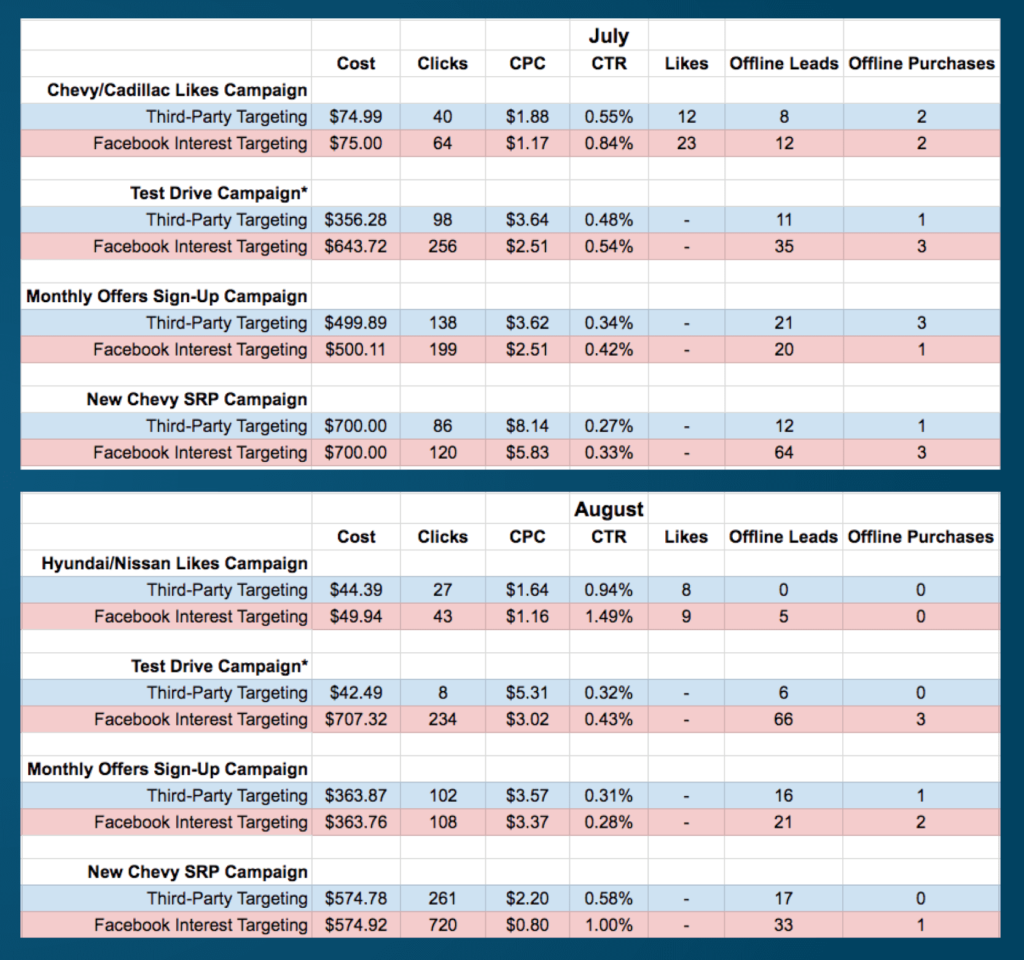Gateway Automotive Tests Third-Party Data vs. Interest-Based Data on Facebook

The Challenge
In the spring of 2018, Facebook announced it would be removing most third-party data providers from Ads Manager. That included Polk data and other information auto dealers frequently used to reach their audiences with targeted Facebook ads.
As of October 1, 2018, no Facebook ads can run using third-party data, unless a large group or agency has a special arrangement with a provider. This change has left a lot of dealers — like Gateway Automotive in North Dakota — wondering whether Facebook ads are still worthwhile if marketers can’t segment as effectively.
At 9 Clouds, we’re used to targeting shoppers without third-party data. We do it all the time in Canada, where third-party data has long been outlawed by stricter privacy laws. So we set out to show Gateway that there are strong alternatives to reach their audience on Facebook.
Advertise Like Canada: How Dealerships Can Overcome Facebook’s Data Limitations
The Solution
Throughout the summer of 2018, 9 Clouds ran a series of head-to-head tests. We put Polk data and other third-party segmentations up against alternative targeting using Facebook’s own data on user demographics, interests, and online activity.
For two months, we ran four campaigns a month to measure the difference in targeting.
The campaign objectives, ad copy, photos, and all other variables were identical — only the targeting was changed. In six of the eight campaigns, budget was fixed at the ad set level so that each ad set could engage a similar number of Facebook users.
The difference was huge! Not only had 9 Clouds shown that we could deliver the same results without third-party data, but we’d actually proven Facebook’s interest-based targeting to be a superior approach.
The Results
In July 2018, 9 Clouds tested the difference that these two targeting methods made on four separate campaigns:
- Chevy/Cadillac Likes Campaign
- Test Drive Campaign
- Monthly Offers Sign-Up Campaign
- New Chevy SRP (Search Results Page) Campaign
In August, we tested four more campaigns:
- Hyundai/Nissan Likes Campaign
- Test Drive Campaign
- Monthly Offers Sign-Up Campaign
- New Chevy SRP Campaign
Here were the full campaign test results, followed by key highlights. (An asterisk denotes which campaigns did not have an even budget imposed at the ad set level.)
Note on offline conversions: Offline Leads and Offline Purchases are determined by uploading lists of leads and buyers from a customer relationship management (CRM) system into Facebook, matching those contacts to Facebook users, and tracing their activity to provide a conservative look at how many users who saw a Facebook ad later became a lead or sale. Learn more about Facebook Offline Events »
Across the board, Facebook’s interest-based targeting outpaced third-party targeting. Interest-based targeting resulted in:
- Lower cost per click (CPC) in all eight campaigns
- Higher click-through rate (CTR) in seven of eight campaigns
- More clicks in all eight campaigns
- More page likes in both “likes” campaigns
- More offline conversions in all eight campaigns
Overall, we concluded that Facebook’s data is much better for reaching relevant audiences and earning more engagement at a lower cost. 9 Clouds also succeeded in showing our partner that despite the new restrictions on the use of third-party data, Facebook is powerful as ever for finding automotive leads.
You can learn more about how we run Facebook ads for auto dealers by clicking below.
Want to Learn More?
9 Clouds offers free digital marketing audits for dealerships.
Not only will you get a snapshot of your current online performance, but you’ll also get valuable recommendations that you can use to improve leads and sales at your dealership.

